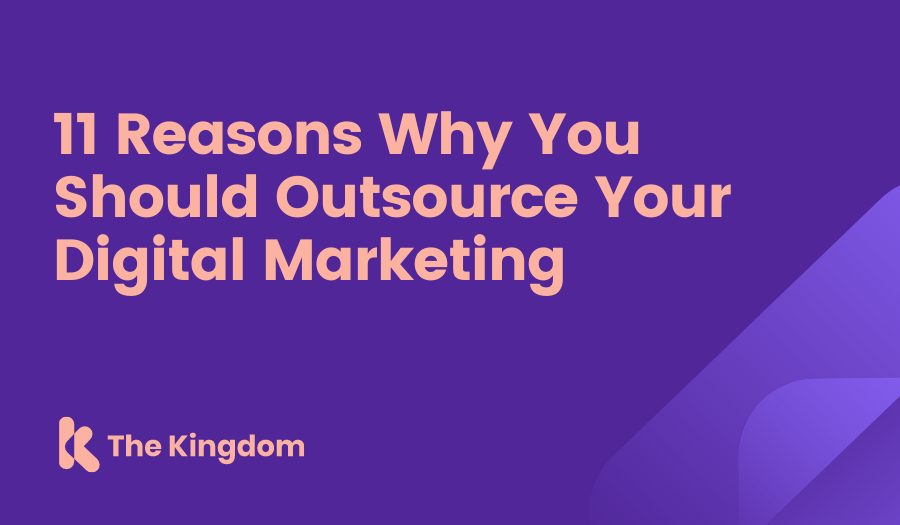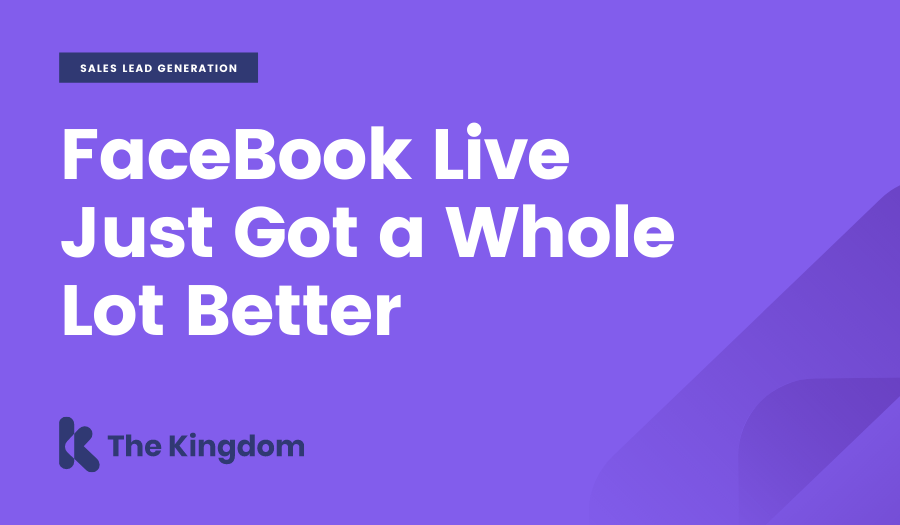Remember years ago, when whatever you posted on Facebook went up on the newsfeed?
Ah, the good old days. Facebook's social media dominance forced it do something.
After all, if Facebook put all the posts your friends and interests created in your news feed you would have to sift through thousands of posts per day. With Facebook's ever changing algorithms, your newsfeed is more personally relevant. The bad news it, it's very much a case of pay to play for businesses using Facebook to reach their customers..
That's why Facebook advertising has become a crucial part of any digital marketing strategy. Businesses still want to reach their audiences on Facebook, but the algorithms prevent that.
Boosting posts seems like the simplest way to get things out there on Facebook.
Is promoting a post the easiest way?
Promoting a post is easy – the button's right there in the bottom corner of your post. You create the post, press the Boost Post button, and out it goes to the world. Simple.
But the easiest way to do advertising on Facebook is also perhaps not the most efficient way. One of the things that's built into Facebook, at the left-hand side of your page, is the Ads Manager.
Ads Manager might seem complicated, but it's super powerful and much smarter.
Ads Manager is especially powerful when you go into the next bit of the application – the Power Editor. We recommend to avoid the Boost Post button and have a look at the Ads Manager.
What makes the Ads Manager unique?
First of all, you're able to target very specific demographics that are part of the Facebook open graph demographics setup. You can pick male or female, for example. Or you can pick geographic radiuses.
These radii are amazing if you're a local business that's trying to attract local customers. There's no point advertising to the greater part of the state, the city, the country, or the world for that matter when you can zero down on a particular area.
This all happens in the back end of the Ads Manager.
Imagine creating a small business ad that will advertise to anybody within a 10, 15, 25-kilometre radius. That's smart, targeted marketing.
Facebook likes vs clicks
One of the things that is critical to understanding is the difference between liking a page or post versus actually clicking on a link to get to your website.
From a business perspective, we always recommend without exception that you have a trackable link back to your site in every single post. That's critical.
Obviously, we use HubSpot. HubSpot allows us to have a link that is tracked to a campaign, and that same link is tracked through analytics so we can tell exactly what is occurring when somebody clicks on that link.

What's absorbing about this is that these tracked links let us see that Facebook is super powerful for getting clicks back to your website, without necessarily getting you likes.
We might see a post that has one or two likes only but generates 10 to 15 clicks back to our website. I know we've seen that with a lot of customers.
The analytics are quite startling, to be completely honest with you. It gives us an excellent gauge of what's resonating with readers.
When we see something that's worked well, the obvious thing is to go and recreate it and do it again. Repurposing that same content, putting a different spin on it, maybe changing the image, but again pushing it out further and trying to reach more people.
This is where the Ads Manager starts coming into its own. Once you have a post that is getting engagement, then that's where you start throwing money at it, because you know it's working.
As a result, in the Ads Manager, you can add images, including up to six or seven in the gallery. You can add video. You can expand the text that you're putting in there.
Audience Re-marketing
Ads Manager also lets you pick audiences, which is another powerful aspect of Facebook.
With Audience Re-marketing, you're able to promote your post to friends of the people that liked your page.
We find that to be a particularly powerful way to advertise.
Audience Re-marketing means that you don't need to have a huge following, which costs money to get to, to have access to a community of people that might know of you, have heard of you, that certainly know someone in the similar demographic group that does know of you.
Re-marketing and pixel tracking
What is re-marketing? Re-marketing is those little ads you see from websites you've recently visited. But how is it that those ads are following you?
What's happening there is pixel tracking. Pixel tracking embeds a small pixel on a site page so your browser remembers your activity. Once you go to web page with Facebook pixel tracking, Facebook will remember that you've been there.
That allows us as advertisers to serve up more ads to you. This is a fantastic thing, especially if you're trying to get your brand out there.
Every single business should be doing pixel tracking. It's a fantastic tool.
You know, it's not often that you'll get a sale from the first ad that people see. You need the eyeballs to see your ad more and more. Pixel tracking does that. It's a dream. It is the best way to meet your needs.
It's one of the harder things to set up on Facebook. You've got to have control of your website, and you've got to have an understanding of the Facebook Power Editor to get the pixel tracking working. That's why consultants like us exist. We know how to do that and can help you with that.
Facebook for business works
A question that I get asked or a statement that gets posed to me quite often is a business that might be B2B, for example. They have a social media strategy which revolves around LinkedIn and perhaps Twitter.
When we pose Facebook to them, we're met with a little bit of a block.
A lot of people say, "I'm in B2B, Facebook's not for me."
The thing is, Facebook is a tool for business, simply because that is where people are.
There's 1.6 billion signed up users, and that number is always going up. The amount of time on page is substantial as Facebook continues to provide engaging content.
The news feed and right-hand post ads, plus the mobile, have the same effect as any other advertising. The difference being, of course, that people are on Facebook, not watching commercial TV. People are on Facebook, not necessarily listening to radio.
It's time to get out of this mindset that work occurs between 9:00 and 5:00, and that's when you think about work. It's not like that anymore. People are multi-tasking. You sit on the couch; you've got your phone in one hand and possibly your laptop on the side. You're doing two or three things at once.
We've heard amazing stats that when ads come on on TV, the engagement on handheld devices goes through the roof.
Business can easily setup Facebook ads so you only get charged per click. If people don't click, so what?
You don't get charged. That's an imperative thing. But you'll only learn this if you go up there and give it a go.
If you're not on it, you're not on it.
Now, the cool thing about Facebook in comparison to other advertising channels, such as TV and radio and magazine advertising, is it's not overly expensive to do that trial.
For $20 you can give it a crack and see the stats and get a feel for it.

Because of that, the question is, should businesses be on it?
The answer is "Absolutely."
Your business should be on Facebook if for no other reason than you have access to the ads manager and the power editor.
With these tools, you can drill down specifics, market only to your target audiences, and cater to the people who already know about your brand.
Want to learn more about your how Facebook can be used to help your brand grow? We recommend downloading our free eBook, "How to Attract Customers with Facebook". Or you can check out some more blogs covering how social media can be used tactically to bring in qualified leads.
Discover more:
Cost per Click vs Cost per Impression: What's better for Facebook?

-2.png?width=560&name=The%20Kingdom%20Blog%20Headers%202019%20revamp%20%20(1)-2.png)






